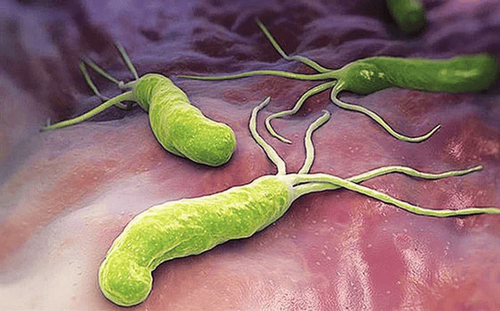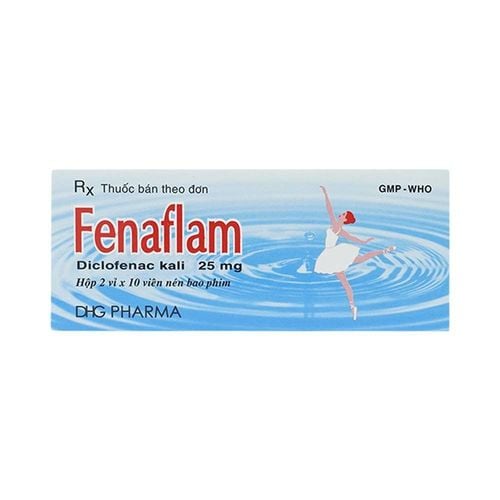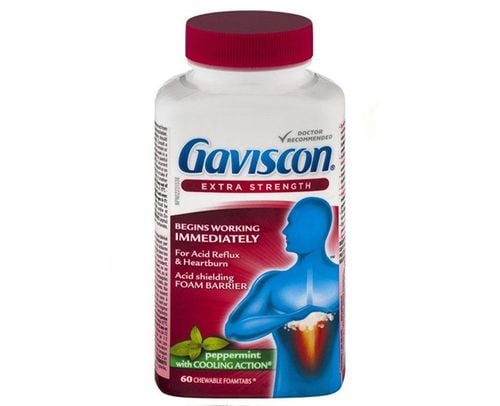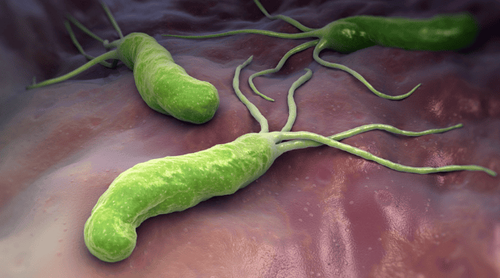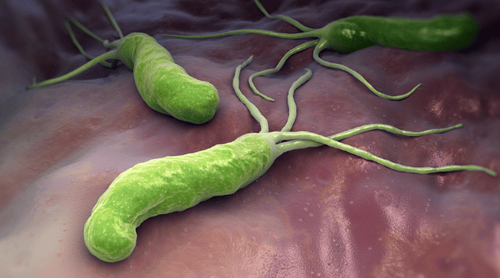This is an automatically translated article.
This article is professionally consulted by Master, Doctor Vu Quoc Anh - Pediatrician - Pediatrics - Neonatology Department - Vinmec Danang International General Hospital. The doctor has nearly 10 years of experience as a resident and treating physician.HP bacteria are transmitted from person to person, children are the most susceptible to infection due to weak immune systems. HP is also the leading cause of peptic ulcer disease in children.
1. What is Helicobacter pylori infection?
Helicobacter pylori (HP) is a gram-negative spirochete found in and below the lining of the stomach lining. HP can survive in the environment of stomach acid. This type of bacteria secretes the enzyme urease to help neutralize the acidity in the stomach. Helicobacter pylori can live and grow in the mucous layer on the surface of the stomach lining. It can cause chronic stomach ulcers, which often develop while not causing any prominent symptoms.Helicobacter pylori is an infection of the stomach with Helicobacter pylori bacteria.
2. Symptoms of Helicobacter pylori infection
Abdominal pain or burning in the abdomen. Nausea. Vomiting. Frequent burping, flatulence. Weight loss. Difficulty swallowing. Bloody or tarry stools. Bloody vomit or black vomit or vomit that looks like coffee grounds.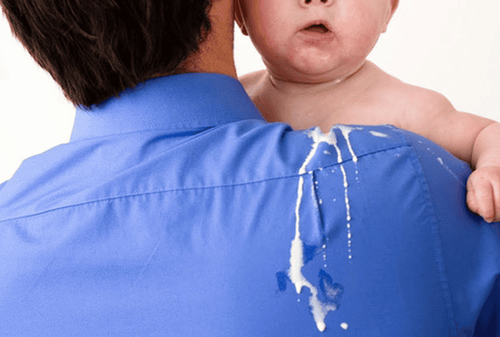
3. Cause
H. pylori is mainly spread from person to person through direct contact with saliva or feces. H. pylori can also be spread through untreated water.H. pylori bacteria enter the body through the mouth and move into the digestive system. The stomach and stomach acid itself creates an unfavorable environment for many bacteria. But the bacteria H. pylori is specially adapted to survive in the stomach. It produces an enzyme that, through a series of biochemical processes, creates a buffer of low acidity for itself.
Children who are in contact with the source of the disease are very susceptible to infection, in many different ways such as eating unsanitary food, not properly cooked, drinking contaminated water, not washing hands before eating, handling saliva contact: Kissing, sharing food or toothbrushes with someone who has HP .
4. How is the test for H.Pylori?
Invasive testing requires endoscopy: Biopsy and histology. Rapid urease test (chlorine test). Germ inoculation. PCR looks for germ DNA. Non-invasive test: Look for antigens in the stool. Breath test for HP bacteria. When is HP testing ordered?Ulcerative pathology is confirmed by X-ray or endoscopy. Histological manifestations of lymphoma (malt). Evaluation after treatment of HP infection: Complicated gastric ulcer (hemorrhage, perforation, or obstruction), lymphoma. If symptoms persist after treatment, endoscopy and biopsy should be done to evaluate peptic ulcer disease associated with prolonged HP infection.
5. How to prevent stomach ulcers caused by HP infection?

Limit sharing eating utensils in the family such as sharing sauce bowls, limiting eating eat each other. Pay attention when feeding children at roadside restaurants because food and eating utensils may not be hygienic. Should eliminate flies, mosquitoes, cockroaches, mice; keep dishes and chopsticks clean, soak household utensils in boiling water. Do not kiss children, feed them food. Do not mix baby food with your chopsticks. Pets such as dogs and cats are also sources of Helicobacter Pylori infection, so it is important to keep pets clean. Limit eating raw foods such as raw vegetables, salads or fermented foods such as shrimp paste, shrimp paste because these foods are often not cleaned properly, easily causing gastrointestinal diseases, including HP infection. Not all Helicobacter Pylori infections require treatment. Whether or not to treat HP should be left to a gastroenterologist to examine, advise and decide to avoid unnecessary costs.
On the contrary, if the child has the above symptoms, parents should take the child to a gastroenterologist for examination, consultation, appointment of testing for HP and consideration of treatment.
>> See also: Photodynamic therapy and vaccines in the treatment of helicobacter pylori - Posted by Master, Doctor Mai Vien Phuong - Gastroenterologist - Department of Examination & Internal Medicine - General Hospital Vinmec Central Park International Faculty
Please dial HOTLINE for more information or register for an appointment HERE. Download MyVinmec app to make appointments faster and to manage your bookings easily.





